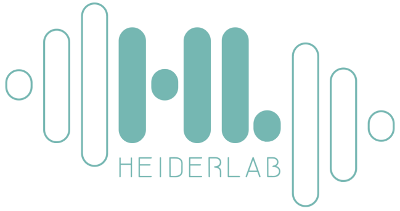CORona Drug InTEractions database
Identify potent SARS-CoV-2 main protease inhibitors via accelerated free energy perturbation-based virtual screening of existing drugs
Zhe Li, Xin Li, Yi-You Huang, Yaoxing Wu, Runduo Liua, Lingli Zhou, Yuxi Lin, Deyan Wu, Lei Zhang, Hao Liu, Ximing Xu, Kunqian Yu, Yuxia Zhang, Jun Cui, Chang-Guo Zhan, Xin Wang, Hai-Bin Luo
Abstract
The COVID-19 pandemic caused by severe acute respiratory syndrome coronavirus 2 (SARS-CoV-2) has become a global crisis. There is no therapeutic treatment specific for COVID-19. It is highly desirable to identify potential antiviral agents against SARS-CoV-2 from existing drugs available for other diseases and thus repurpose them for treatment of COVID-19. In general, a drug repurposing effort for treatment of a new disease, such as COVID-19, usually starts from a virtual screening of existing drugs, followed by experimental validation, but the actual hit rate is generally rather low with traditional computational methods. Here we report a virtual screening approach with accelerated free energy perturbation-based absolute binding free energy (FEP-ABFE) predictions and its use in identifying drugs targeting SARS-CoV-2 main protease (Mpro). The accurate FEP-ABFE predictions were based on the use of a restraint energy distribution (RED) function, making the practical FEP-ABFE−based virtual screening of the existing drug library possible. As a result, out of 25 drugs predicted, 15 were confirmed as potent inhibitors of SARS-CoV-2 Mpro. The most potent one is dipyridamole (inhibitory constant Ki = 0.04 μM) which has shown promising therapeutic effects in subsequently conducted clinical studies for treatment of patients with COVID-19. Additionally, hydroxychloroquine (Ki = 0.36 μM) and chloroquine (Ki = 0.56 μM) were also found to potently inhibit SARS-CoV-2 Mpro. We anticipate that the FEP-ABFE prediction-based virtual screening approach will be useful in many other drug repurposing or discovery efforts.
Source: PubMed
Related molecules
Related interactions
| Target | Target affiliation | Drug | Type | Result |
|---|---|---|---|---|
| Target | Target affiliation | Drug | Type | Result |
| Name | Synonyms | Genes | Origin |
|---|---|---|---|
| Name | Synonyms | Genes | Origin |
| Name | Synonyms | PubChem | DrugBank | RCSB PDB | ATC |
|---|---|---|---|---|---|
| Name | Synonyms | PubChem | DrugBank | RCSB PDB | ATC |
| Title | Authors | DOI | Source | Article type | Date |
|---|---|---|---|---|---|
| Title | Authors | DOI | Source | Article type | Date |
| Title | Status | Phases | Start Date | Prim. Comp. Date | Comp. Date | First Post. Date |
|---|---|---|---|---|---|---|
| Title | Status | Phases | Start Date | Prim. Comp. Date | Comp. Date | First Post. Date |
CORDITE (CORona Drug InTEractions database) collects and aggregates data from PubMed, MedRxiv, BioRxiv, ChemRxiv and PMC for SARS-CoV-2. Its main focus is set on drug interactions either addressing viral proteins or human proteins that could be used to treat COVID. It collects and provides up-to-date information on computational predictions, in vitro, as well as in vivo study data.
The information provided is for research only and we cannot guarantee the correctness of the data.
Please contact dominik.heider@uni-muenster.de for further information.
Programmable access
There is an open API for access programmatically to the database. The API will print a JSON output:
- Interactions
https://cordite-api.uni-muenster.de/api.php?action=list&table=interaction
- Targets
https://cordite-api.uni-muenster.de/api.php?action=list&table=target
- Drugs
https://cordite-api.uni-muenster.de/api.php?action=list&table=drug
- Publications
https://cordite-api.uni-muenster.de/api.php?action=list&table=publication
- Clinical trials
https://cordite-api.uni-muenster.de/api.php?action=list&table=clinical_trial

